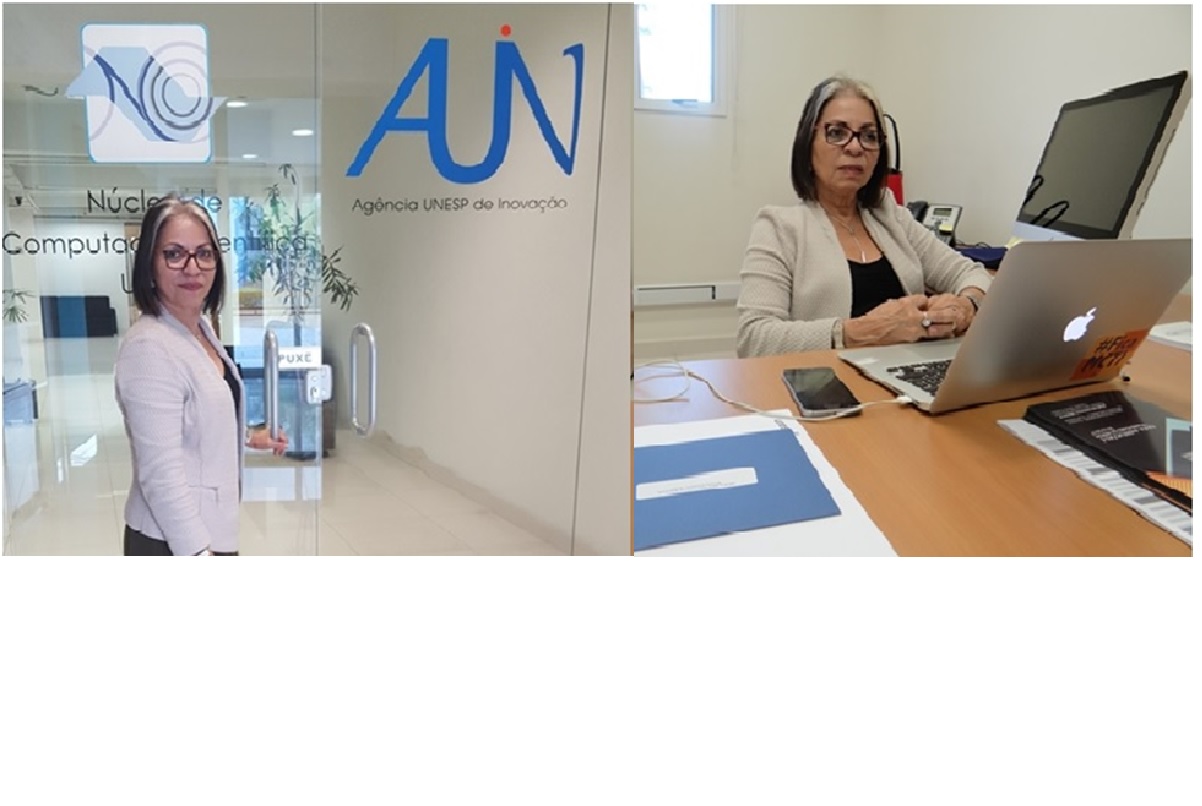To Vanderlan Bolzani, paraibana researcher who made scientific career in São Paulo, Brazil’s biodiversity makes the country an excellent chemical laboratory.
The paraibana Vanderlan da Silva Bolzani has outstanding performance in the Brazilian Science. By a stroke of fate, she was no counselor before joining the master’s degree course at University of São Paulo – USP and ended up being guided by Otto Gottlieb, one of the greats names of Brazilian Science and one of the leading researchers in the area of natural products. She returned to teach at Federal University of Paraiba – UFPB but she can no longer adapt to the rhythm of the place and headed again for Sao Paulo, where she lives for 40 years between the capital and Araraquara. Her research on natural products chemistry already earned her 24 awards and titles, including the Young Scientist Award, of CNPq in 1984 and Kurt Politzer Award in Technological Innovation, of Brazilian Association of Chemical Industries (Abiqui) in 2015. Nossa Ciência heard the professor Vanderlan in her workroom in the Innovation Agency of São Paulo State University (Unesp), which is the executive director.
Nossa Ciência: What are your childhood memories, which could show some interest for science?
Vanderlan Bolzani: The girls had to play with dolls, house and I found it very bland, loved playing with the boys of “bolinha de gude, pinhão” because I had to compete. My mother, a legitimate descendant of Portuguese who studied at convent school and how the ladies of that age, did not like. So if I studied hard and was well in school, I could give a getaway from time to time.
NC: How you opted for chemistry?
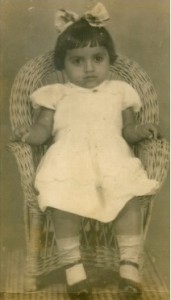 VB: My high school education was all public at Liceu Paraibano, in João Pessoa. In the 1960s, the most common was we choose between medicine, engineering and law school. I chose medicine and I until the second year, but did not like and decided to lock the course for two years. I made a new entrance exam for Pharmacy and Biochemistry at Faculty of Pharmaceutical Sciences, also at the Federal University of Paraíba (UFPB). Completing a degree in Pharmacy, I gave up medicine and do not regret. The Pharmacy course has a basic cycle, which has a lot of discipline focused on Organic Chemistry and Biochemistry, which was all done at the Institute of Chemistry and I identified myself enough, I loved the organic chemistry courses.
VB: My high school education was all public at Liceu Paraibano, in João Pessoa. In the 1960s, the most common was we choose between medicine, engineering and law school. I chose medicine and I until the second year, but did not like and decided to lock the course for two years. I made a new entrance exam for Pharmacy and Biochemistry at Faculty of Pharmaceutical Sciences, also at the Federal University of Paraíba (UFPB). Completing a degree in Pharmacy, I gave up medicine and do not regret. The Pharmacy course has a basic cycle, which has a lot of discipline focused on Organic Chemistry and Biochemistry, which was all done at the Institute of Chemistry and I identified myself enough, I loved the organic chemistry courses.
NC: When you left the undergraduate course in João Pessoa for the master’s degree course in Sao Paulo, you already knew I wanted to be a scientist?
VB: They say that the masters trace ways and I think that one of the ways that brought me to the science and research was much under the influence of Professor Vilmar Nunes de Souza, of Organic Chemistry, in my degree in Pharmacy. When I finished, I decided to do a master’s degree course here at USP. As well as in the change of Medicine course for Pharmacy, again my father and mother gave me the greatest support to me, without even knowing how they would keep a daughter in São Paulo, because it was for very rich people, yet they paid for my studies. I knew I wanted to study, but had no notion of being a scientist or a professional in the field of Pharmacy, if set up a laboratory for clinical analysis or go for the pharmaceutical industry. It was in Sao Paulo by Professor Otto Gottlieb when I decided that I wanted to be a scientist, finishing the master’s degree and make research on natural products.
NC: How was the arrival in São Paulo?
VB: The first impact that I had was when I felt the prejudice between rich regions and poor regions of the country. While not a rich girl, daughter of a mill owner, we had good living conditions in my environment, but at USP, a very elitist university, a Northeastern student had to do many courses because they thought my training was not very good. I came to work with Professor Paulo de Carvalho, who had been Master’s mentor Professor Vilmar de Souza. One day before our first meeting, he had a heart attack and died. I was like a headless chicken, a little lost, without knowing whether returning back or not, did not know anyone here.
NC: What happened after that?
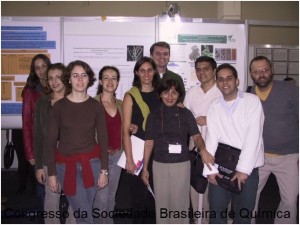 VB: In the Institute of Chemistry of USP, I started to see the hard reality, competitiveness, power relations, but I was firm, studying for a Master’s test. One day, someone introduced me to Professor Mario Motidome and told him my story. He who was a close friend of Professor Paulo de Carvalho, told me to look for him. In his room in Block 11 of the Institute of Chemistry, he told me that working with natural products and that if I wanted, could stay there. He would guide me, I would learn a little, until occurring the test and I would choose someone to be my advisor and I was excited.
VB: In the Institute of Chemistry of USP, I started to see the hard reality, competitiveness, power relations, but I was firm, studying for a Master’s test. One day, someone introduced me to Professor Mario Motidome and told him my story. He who was a close friend of Professor Paulo de Carvalho, told me to look for him. In his room in Block 11 of the Institute of Chemistry, he told me that working with natural products and that if I wanted, could stay there. He would guide me, I would learn a little, until occurring the test and I would choose someone to be my advisor and I was excited.
NC: It was then that you knew your future supervisor?
VB: Yes. The head of the laboratory was one of the great manes of the Brazilian Science and one of the biggest in the area of natural products, Professor Otto Gottlieb. He talked a lot of cultures, of the importance of plants, the importance of biodiversity, traditional knowledge and I was fascinated. I passed in the test and I started to make Masters in natural products, but I think that the taste I’ve had without much conscience, perhaps for the Indian blood atavism of my father, to carry the genetic description of like the nature. As professor Otto advisees, I was the first Fapesp scholarship holder, who was not of the State of São Paulo.
NC: After the Masters, there was a return to Paraíba …
VB: After I finished my Masters, I was invited to be an assistant professor at the Chemical Institute of UFPB and I thought it would be wonderful, would return to their homeland with knowledge and be able to contribute in my university. During this period I was already married to a Paulistano, who made Sociology at USP and wanted to go to the Northeast because he thought there was much to be done, especially by a sociologist. We returned to João Pessoa, I for UFPB and he to a private university. He was used to São Paulo, loved the beach, but hated everything: the city newspaper, the fact that the newspapers Estadão and Folha de S. Paulo only arrive at night. I finished the Masters and wanted to make doctorate degree, but there I only gave classes. In a conversation with my mentor, he said that if I could come to São Paulo would be better for my career. I decided to come to me enroll Doctoral not to lose the sequence. At that time, João Pessoa had no airport.
NC: Again, a fortuitous meeting made your life to change the axis. How it was?
VB: I went to the airport in Recife and took my daughter who still was a baby, to come to the French test already for a doctorate. On the plane, I sat beside a lady, who between one conversation and another, said she was amazed at my girl, not crying. She was Maria Aparecida Campos Pouchet, director of the School of Pharmaceutical Sciences of São Paulo State University – UNESP in Araraquara and invited me to create a research group of natural products in the Faculty.
NC: You accepted?
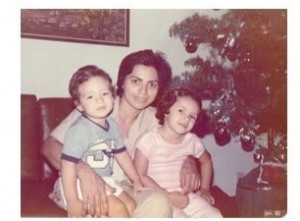 VB: And I went to live in Araraquara, I was in the pharmacy, it was then that I made my first research project, already structuring me as an assistant professor, with a line of research, I started researching rubiáceas, it was something I had I started on my PhD with my advisor giving me a support. But in this period, already structured, as a professor, giving classes, already with laboratory, my husband had an ischemic stroke with 38 years. The boys were small and there was an avalanche because I was starting to mount the career and he was very ill.
VB: And I went to live in Araraquara, I was in the pharmacy, it was then that I made my first research project, already structuring me as an assistant professor, with a line of research, I started researching rubiáceas, it was something I had I started on my PhD with my advisor giving me a support. But in this period, already structured, as a professor, giving classes, already with laboratory, my husband had an ischemic stroke with 38 years. The boys were small and there was an avalanche because I was starting to mount the career and he was very ill.
NC: How does this fact affect the routine of the family?
VB: It came to São Paulo for the house of the parents, the family of it had condition, it was a tempão in the Einstein, all spent the money that had, had that to make sessions of Fonoaudiologia, Fisioterapia, a thing mount. I was there, my son was with six years and my son with four. All weekend I vine. In one of these comings, I alone vine and capotei the car some times. Then I asked for a removal, that I had right, and came to São Paulo, in the house of the parents of it until we buy a house. Later we come back toward Araraquara, I it stops the activities and it already pensioner. It was hemiplégico, had hour that he said the things, but had hour that he forgot completely and it was a hard time, very lasts.
NC: Chemistry is often quoted in opposition to nature, but you work with the chemistry of nature …
VB: He came to Sao Paulo to her parents’ house, his family had condition, it was a long time in Albert Einstein Hospital, spent all the money he had. He had to do speech therapy sessions, physiotherapy, a lot of things. I stayed there, my daughter was six years old and my son four. Every weekend I came. In one of these comings, I was alone and the car overturned several times. So I asked for a temporary removal, I was right, and I came to São Paulo, at his parents’ house until we buy a house. Then back to Araraquara, I for activities and he has retired. He was hemiplegic, had time that he speak things, but had time that he completely forget and it was a hard time, very hard.
NC: With the return to Araraquara, you continued your career?
VB: The time passed and one day he said that I was not going to progress in my career, that I had to go to the United States for the Post-Doc and he would go to his mother’s house. At that moment I was even mad, I thought he was dispatching me, but then I understood the dimension of greatness of soul. And I went to the United States alone with the two children to Post-Doc at the Virginia Polytechnic Institute and State University. It was a wonderful experience, even for children. Mariana was already 14 years old and Thiago was 12. I produced enough at that time, I met many people and when I came back, I have consolidated a Laboratory of Natural Products in Araraquara.
NC: Chemistry is often quoted in opposition to nature, but you work with the chemistry of nature …
VB: To work on natural products, here we have a real paradise, a beautiful chemical laboratory, highly sophisticated. We have a very rich biodiversity, little studied. Understanding the nature of the chemical point of view is a beauty. Understanding this environment gives us the ability to project the future, managing a forest, knowing the chemistry that has behind it, the mechanisms involved, the species, as they produce and what they can produce, such as whether or not to devastate, which you can take advantage of this inexhaustible source of bio-products, including high added value. Our route in the beginning was to understand the molecules, determine their structures, then know the biological and pharmacological activity, to know what can be useful to the human species.
NC: They say northeastern, when they come to the southeast, it has to be twice as competent to occupy spaces similar to the place. You recognize this as true?
Read the answer to this and other questions next Wednesday (24).
By Monica Costa – Nossa Ciência – August / 2016
See article: http://www.nossaciencia.com.br/brasil-e-um-paraiso-para-se-trabalhar-em-produtos-naturais#sthash.OanoZnHW.dpuf




